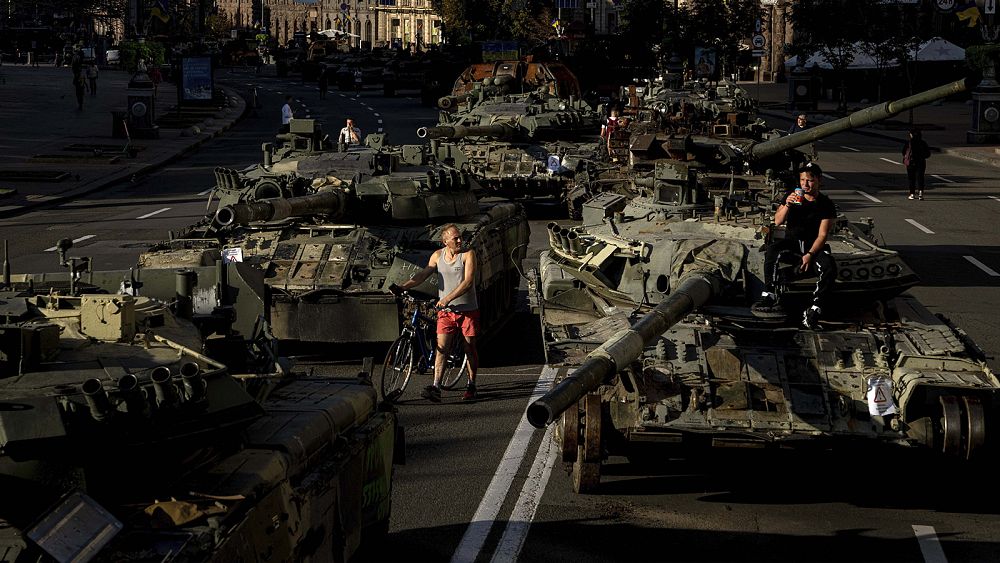Russian rockets strike train station in central Ukraine, killing at least 15

Exactly six months after Moscow invaded its western neighbour, a Russian strike on Independence Day killed at least 15 people and wounded scores of others at a railway station in central Ukraine.
President Volodymyr Zelenskyy opened his speech in front of the UN Security Council by sharing the news of the attack.
“I have just received information about a Russian missile strike on a railway station in the Dnipropetrovsk region, right on the carriages at the station in Chaplyne. Four passenger carriages are on fire,” Zelenskyy said at the beginning of his speech.
“At least 15 people were killed and about 50 injured. (…) This is our everyday life,” he added.
Images shared by Ukrainian outlets showed several train carriages, as well as several cars and what is said to be the town’s train station completely devastated by an apparent explosion and resulting fire.
“We will fight for it until the end,” the Ukrainian president had earlier proclaimed, specifying that he referred to all of Ukraine “without any concessions or compromises,” including the Donbas basin, partly in the hands of Moscow-backed separatists since 2014, and Crimea, annexed by Russia the same year.
Celebration amid fears of escalation
The attack came after warnings that the Kremlin might use the public holiday in Ukraine — as well as the death of the daughter of radical nationalist philosopher Aleksandr Dugin, Daria Dugina — to escalate its strikes across the country.
After six months of the war, the anniversary of independence from the USSR in 1991 was therefore not to be celebrated.
Zelenskyy and his wife paid tribute to the Ukrainian soldiers killed by observing a minute of silence and laying yellow and blue bouquets — the colours of the national flag — in front of a memorial in the centre of the capital, Kyiv.
The two then attended a rally in the Cathedral of St. Sophia together with the leaders of Ukraine’s main religious denominations.
The authorities in Kyiv, where warning sirens sounded in the morning, banned all public gatherings from Monday to Thursday and, in the northeast, the governor of the Kharkiv region ordered a curfew from Tuesday evening to Thursday morning.
In the early hours of 24 August, explosions sounded in several cities, such as Kharkiv, Zaporizhzhia and Dnipro, according to local authorities.
According to UN numbers, at least 5,587 civilians had been killed and 7,890 wounded in Ukraine since 24 February.
More than half of these deaths took place in the eastern Donbas region, where fighting has been further intensified since the beginning of the invasion.
